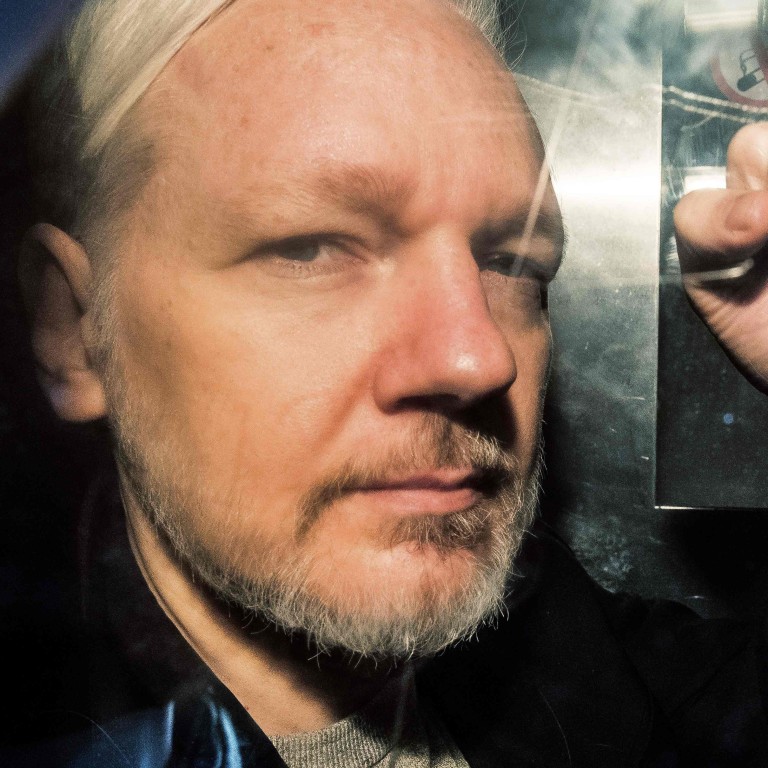
WikiLeaks founder Julian Assange travelled to Europe and Asia trying to recruit hackers, US government alleges
- Prosecutors say it further demonstrates that Assange sought to procure and release classified information, which is the basis of existing criminal charges
- Assange was arrested last year after being evicted from the Ecuadorean Embassy in London and is at the centre of an ongoing extradition tussle
The superseding indictment does not contain additional charges beyond the 18 counts the Justice Department unsealed last year. But prosecutors say it underscores Assange’s efforts to procure and release classified information, allegations that form the basis of criminal charges he already faces.
Beyond recruiting hackers at conference, the indictment accuses Assange of conspiring with the leader of LulzSec, a hacking group, and asking to be provided with documents and databases.
Assange fathered two kids with lawyer in Ecuador’s UK embassy
Prosecutors say Assange also published on WikiLeaks emails from a data breach of an American intelligence community consulting company by a hacker affiliated with LulzSec and “Anonymous”, another hacking group.
Assange’s lawyer, Barry Pollack, said in a statement that “the government’s relentless pursuit of Julian Assange poses a grave threat to journalists everywhere and to the public’s right to know”.
“While today’s superseding indictment is yet another chapter in the US Government’s effort to persuade the public that its pursuit of Julian Assange is based on something other than his publication of newsworthy truthful information,” he added, “the indictment continues to charge him with violating the Espionage Act based on WikiLeaks publications exposing war crimes committed by the US Government”.
The Justice Department has already charged him with conspiring with former US Army intelligence analyst Chelsea Manning in one of the largest compromises of classified information in US history. Prosecutors say the WikiLeaks founder damaged national security by publishing hundreds of thousands of classified documents, including diplomatic cables and military files on the wars in Iraq and Afghanistan, that harmed the US and its allies and aided its adversaries.

Assange maintains he was acting as a journalist entitled to First Amendment protection. His lawyers have argued the US charges of espionage and computer misuse were politically motivated and an abuse of power.
Assange generated substantial attention during the 2016 presidential election, and in investigations that followed, after WikiLeaks published stolen Democratic emails that US authorities say were hacked by Russian military intelligence officials. An investigation by special counsel Robert Mueller revealed how Trump campaign associates eagerly anticipated the email disclosures, and one Trump ally, Roger Stone, was found guilty last year of lying about his efforts to gain inside information about the emails. Assange, however, was never charged in Mueller’s Russia investigation.
Why CIA couldn’t stop theft of its most powerful hacking tools
The allegations in the new indictment center on conferences as far back as 2009, in locations including the Netherlands and Malaysia, at which prosecutors say he and a WikiLeaks associate sought to recruit hackers who could locate classified information, including material on a “Most Wanted Leaks” list posted on WikiLeaks’ website.
According to the new indictment, he told would-be recruits that unless they were a member of the US military, they faced no legal liability for their actions.
At one conference in Malaysia, called the “Hack in the Box Security Conference”, Assange told the audience: “I was a famous teenage hacker in Australia, and I’ve been reading generals’ emails since I was 17.”

